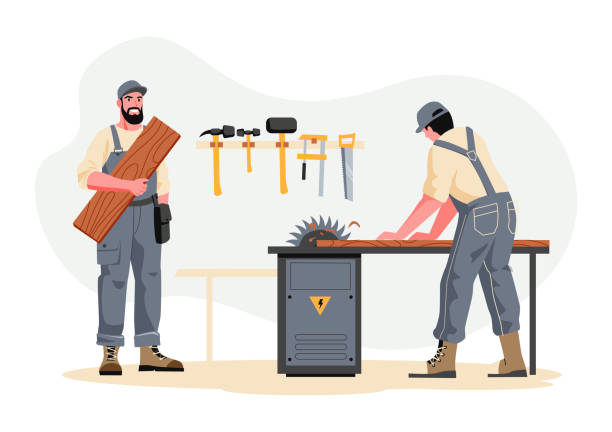Why do Families Need to Provide Workers’ Compensation for Caregivers?
The first question many families ask when hiring a nanny, home health aid, or senior caregiver is, why do I need to provide workers’ compensation? The simple answer is that you’re most likely required to by law. Nannies and senior caregivers are domestic employees, and as their employer you’re usually required to provide them a level of protection in case they’re injured on the job. A better answer is that it’s worth it. Workers’ compensation is a two way street, providing financial support for caregivers in their time of need, as well as protecting your family from civil lawsuits over workplace injuries.
It may seem strange to think about workplace injury in the context of your home. For many people, workers’ compensation brings to mind images of warehouses, hospitals and construction sites, where the risk of injury is obvious and imminent. However, a fall down the stairs, burns from a gas stove or even a particularly dire lego-to-the-foot incident can all have financial and legal ramifications if your household isn’t properly protected.
REAL WORLD EXAMPLE:
A caregiver injured her back in a car accident on the way to pick up groceries for her employer. Her injuries not only required $15,000 worth of surgery and rehab, but also kept her from working for 12 weeks. Based on her average wage, workers’ compensation would have covered about $18,000. However, because her employer didn’t have workers’ compensation, the family was forced to pay for her losses out of pocket.
What is Workers’ Compensation Insurance?
Workers’ Compensation insurance provides coverage for medical expenses and lost wages if an employee becomes ill or injured on the job. Typically, it also prevents the employee from being able to sue your family (the employer), regardless of fault.
In nearly every state, families are required to provide workers’ compensation for their domestic employees, though the definition of “domestic employee” varies slightly. For example, some states include housekeepers and gardeners, while others include mainly caregivers. You can learn more about the requirements in your state here.
Are there Workers’ Compensation Policies Designed for Domestic Employees?
As we touched on earlier, most people do not picture household risks when thinking about workers’ compensation insurance. Unfortunately, neither do insurance carriers. The vast majority of workers’ compensation policies out there are designed for large employers with huge amounts of risk within their workforce. As a result, they can be expensive and rigid. That’s why we partnered with Allrisks to design a workers’ compensation program specifically for caregivers.
The specialized program is designed to meet the unique needs of families bringing caregivers into their homes. The simple, online application excludes the many standard questions that don’t apply to families, making the quoting process quick and easy.
Because the program was designed specifically for low-risk employees, the premiums are significantly less expensive than traditional workers’ compensation insurance.
How are Workers’ Compensation Premiums Calculated?
The amount you pay for workers’ compensation is set at the state level, so it will vary based on where you live. However, the states follow the same general formula:
Experience Modification Rate x Classification Rate x (Payroll / 100) = Premium
Your experience modification rate is calculated based on any claims or losses you’ve had in the past. As with any insurance policy, your premium tends to increase after you’ve had a claim, so it’s important not to treat insurance as a free pass. Workers’ compensation is a critical safety net, but it’s still important to take all precautions to avoid putting your employees in harm’s way.
Your classification rate is a number set at the state level based on the work your employees are doing. The more risky the work, the higher the number.
The more specific you can be about your classification rate, the cheaper your policy will be. For example, some programs may bucket caregivers with other healthcare workers, who are generally in a higher risk category. By creating a program specifically designed for caregivers, like senior care providers, we’re able to set your classification rate to a level that better matches the risk that you’re actually bringing into your home. For example, the classification rate for the category “Home and Public Healthcare” can be as high as 9% of Payroll, whereas Bunker’s Caregiver program is closer to 3% (though the rates will still vary by state).
Workers’ Compensation for Caregivers
Click below and fill out a quick online application to get an affordable workers’ compensation policy for your caregiver. If you have any questions, our team of licensed advisors is here for you! If your interested in learning more visit https://buildbunker.com/ or Reach out to support@buildbunker.com, give us a call at (877) 968-9108, or head to buildbunkerworkcomp.com to learn more!
Learn More:
This article is for informational purposes only, and does not constitute legal advice. Check your state employment laws and current insurance policies for more information on your coverage and legal responsibilities.
Does my homeowner’s policy cover nannies and senior caregivers?
Your homeowner’s insurance policy protects you in the event that someone like a painter or a handyman gets injured while working in your home. The difference here is that these workers are not long term employees of your household. With the exception of California (where homeowner’s policies sometimes include workers’ compensation), your homeowners’ policy will not cover domestic employees, like nannies and senior caregivers.
Is Workers’ Compensation the same as Employer’s Liability?
Though they typically come as a pair, these are separate coverages. The Workers’ Compensation provides protection for the employee. Employer’s Liability provides protection for your family (the employer), if your caregiver is not adequately covered by workers’ Compensation. For example, if an employee’s medical bills weren’t fully covered, or they believe that their employer’s negligence caused the accident, they may decide to sue. Employer’s liability insurance will help cover the costs of the lawsuit. It can also provide coverage for lawsuits involving other types of claims, like wrongful termination.
What if a Family Member is the one injured?
Workers compensation is the only coverage that you’re (in some cases) legally required to purchase. However, it only covers the employee’s injuries. What happens if your caregiver makes a mistake that harms your family?
This is where Professional Liability (Medical Malpractice) insurance comes in. Professional Liability insurance covers mistakes that your employee makes, which harm the person they’re caring for. For example, if a senior care taker mixed up medication bottles, or a nanny’s negligence caused a child to break their wrist.
While your caregiver might be legally responsible for covering these costs either way, the fact is that they likely wouldn’t be able to pay for the damages. Professional Liability insurance adds a layer of protection should anything happen. Many caretakers purchase this coverage for themselves, but as their employer you can provide it to them as well. Click below, or refer your caregiver here for an affordable professional liability policy:
Workers’ Compensation for Caregivers
Click below and fill out a quick online application to get an affordable workers’ compensation policy for your caregiver. If you have any questions, our team of licensed advisors is here for you! If your interested in learning more visit https://buildbunker.com/ or Reach out to support@buildbunker.com, give us a call at (877) 968-9108, or head to buildbunkerworkcomp.com to learn more!
Learn More:
This article is for informational purposes only, and does not constitute legal advice. Check your state employment laws and current insurance policies for more information on your coverage and legal responsibilities.
[/fusion_text][/fusion_builder_column][/fusion_builder_row][/fusion_builder_container]











